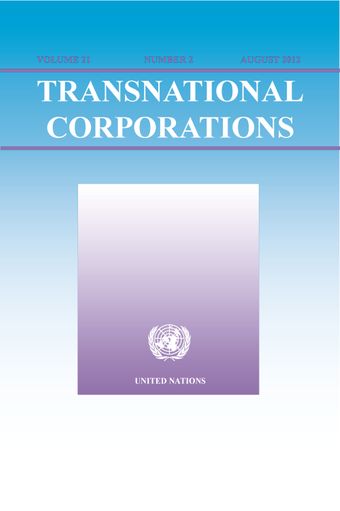-
The anatomy of a failed industrial policy: Developing an aluminium industry in Trinidad and Tobago
- Source: Transnational Corporations, Volume 21, Issue 2, May 2013, p. 47 - 76
-
- 29 May 2013
- Previous Article
- Table of Contents
- Next Article
Abstract
The literature argues that the industrial policy is most effective in an institutional environment characterized by embedded autonomy, which describes an independent yet collaborative relationship between government bureaucracy and the private sector. However, such embedded autonomy of government bureaucracy in high-growth Asian countries was created under socio-economic and political circumstances that are no longer prevalent today. Analysis of the industrial policy concerning foreign investment projects in the aluminium industry in Trinidad and Tobago in the 2000s shows that embedded autonomy is necessary, but not sufficient, for successful FDI-facilitated development. This paper posits that the institutional framework for implementing industrial policy in today’s economic and political context needs to have the characteristics of embedded autonomy, but at the same time it needs to address the issues of accountability and transparency.
© United Nations



